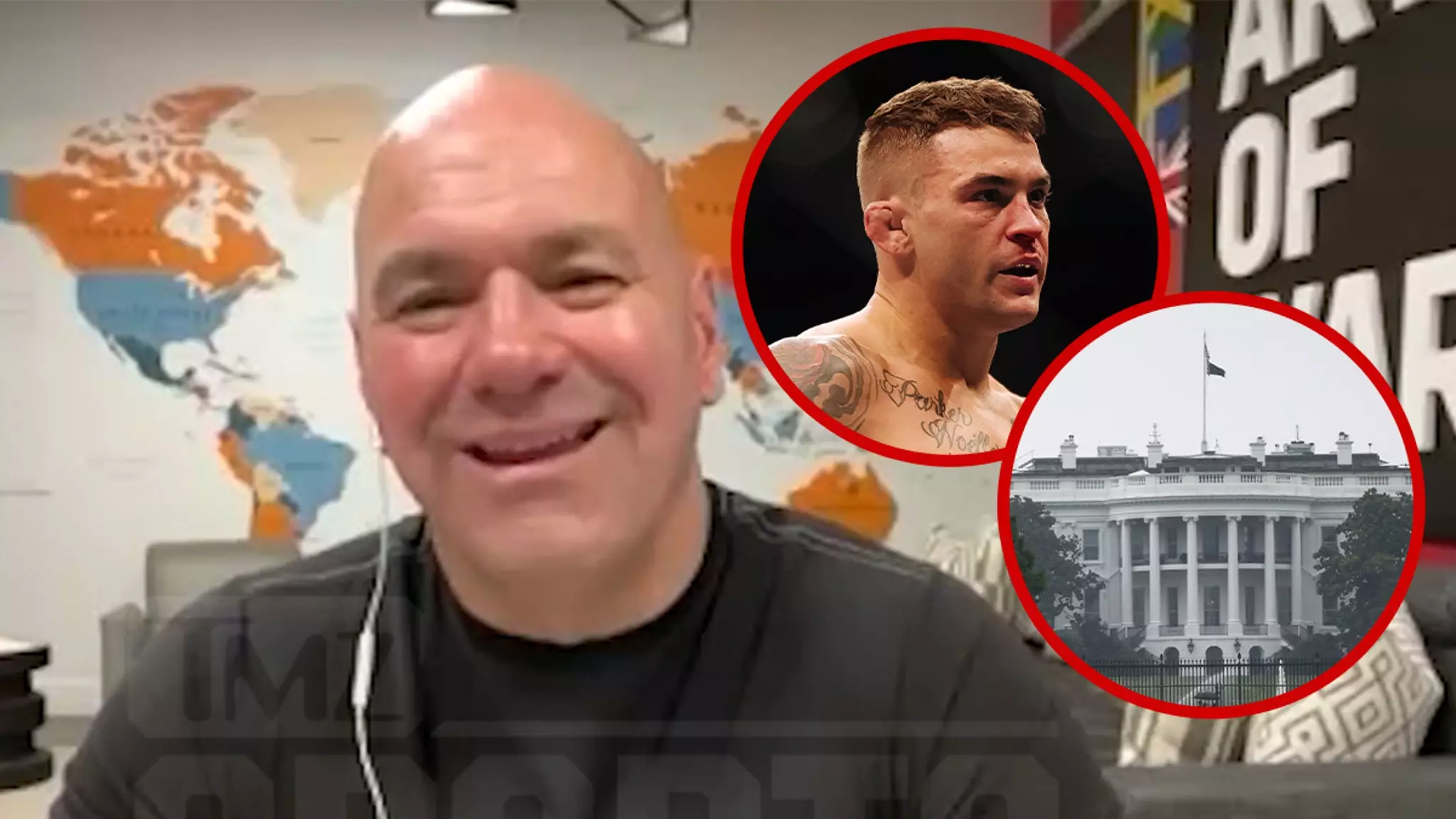In an unprecedented move that resonates beyond the realm of sports, UFC President Dana White’s ambitious plans to host a major event at the White House signal a new frontier in athletic entertainment and national pride. While combat sports have long thrived in arenas and stadiums nationwide, the notion of bringing a UFC spectacle directly to the symbolic heart of American power is audacious and provocative. It challenges preconceived notions about the separation of sport from politics, entertainment from tradition. White’s assertion that the event is “almost ready” underscores his determination to make history, not just as a sporting milestone but as a statement of accessibility and patriotism. The White House, long regarded as a bastion of political authority and tradition, is now envisioned as a venue for unity—a stage where the nation’s favorite fighters could showcase their skills in the very residence of American leadership.
This move reflects a broader ambition: to intertwine the sport with national identity, leveraging the symbolic significance of the White House to foster a groundswell of patriotism. The idea that the American people should have full access to this historic location aligns well with President Trump’s philosophy, emphasizing openness and pride. It’s a bold reimagining of a space typically reserved for diplomacy and history, transforming it into a lively arena of strength, resilience, and entertainment. The planning phase underway reveals an understanding that this won’t be an ordinary event—security, logistics, and fan engagement must be meticulously curated to honor both the venue’s significance and the sport’s spectacle.
From Fighter Aspirations to Political Legacy: The Spectacle’s Cultural Impact
Already, the buzz among fighters like Conor McGregor and Jon Jones highlights the event’s allure—fighters eager to leave their mark on history. While the actual lineup remains flexible at this stage, the prospect of high-profile stars fighting in such a historic setting promises to elevate UFC’s profile even further. The implications extend beyond the octagon; this event has the potential to redefine how sporting moments are celebrated in national consciousness. It’s not just about the fight; it’s about what the fight symbolizes: unity, pride, and the power of sports to transcend mere competition and serve as a unifying force.
White’s focus on star power ensures audience engagement will be explosive. When it comes to aesthetics and storytelling, the event has all the ingredients to become a legendary chapter in sports history. It’s a strategic move that positions UFC at the crossroads of cultural influence and patriotic expression. Hosting such a landmark at the White House could ignite a new tradition—an annual political-sports fusion that redefines the public space as a shared arena for celebration, protest, or solidarity.
Beyond the White House: Broader Strategic Endeavors in Combat Sports
White’s ambitions extend well beyond this historic event. His involvement in promoting blockbuster fights like Canelo Alvarez versus Terence Crawford demonstrates his knack for innovative crossovers that challenge boxing’s stagnation. TV ratings, fan engagement, and fighter legacy all stand to benefit from these strategic endeavors—particularly as White attempts to modernize combat sports, making them more inclusive, exciting, and relevant.
At the core of White’s vision is a desire to elevate fighters, diversify platforms, and push the boundaries of what is possible in combat sports promotion. His upcoming events, including Dustin Poirier’s farewell and trilogy bouts in MMA, are testaments to his focus on maintaining MMA’s prestige while expanding its cultural footprint. The White House event fits into this larger narrative: sport as a vessel for national pride, political symbolism, and global entertainment.
White’s daring initiatives remind us that sports are not isolated from politics and culture—they are intertwined. His determination to see UFC redefine what’s possible, even if it risks controversy or logistical hurdles, exhibits a confidence rooted in the belief that sports can be transformative. His ventures into boxing and the push for marquee cross-sport events underscore his strategy: to position UFC and combat sports at the heart of mainstream cultural diplomacy.
Challenging the Status Quo: The Future of Sports and Patriotism
What does this mean for the future? If successful, the event at the White House could inspire other sports and entertainment industries to rethink how they engage with cultural symbols. It pushes the boundaries of conventional sporting venues, hinting at a future where political landmarks become new chapters in sports history—places where athletes can showcase not only their skills but also their patriotism and national identity.
This bold move also invites scrutiny. Critics might argue about the appropriateness of politicizing a sporting event or question the logistics related to security and audience management. However, the underlying message remains clear: sport and patriotism are powerful tools for narrative-building. White’s vision capitalizes on this synergy to forge a legacy—one that positions UFC not just as a fighting organization but as a cultural catalyst capable of reshaping American sports entertainment.
In sum, Dana White’s plans to bring UFC to the White House exemplify an audacious reimagining of sports as a conduit for national pride, political symbolism, and collective unity. Whether it becomes a defining moment or a fleeting spectacle, it undeniably pushes the boundaries of what combat sports can achieve in the cultural landscape.

